Benefits Of Coconut Oil For The Skin
Understand how to use this versatile oil to enjoy naturally enhanced and healthy skin.
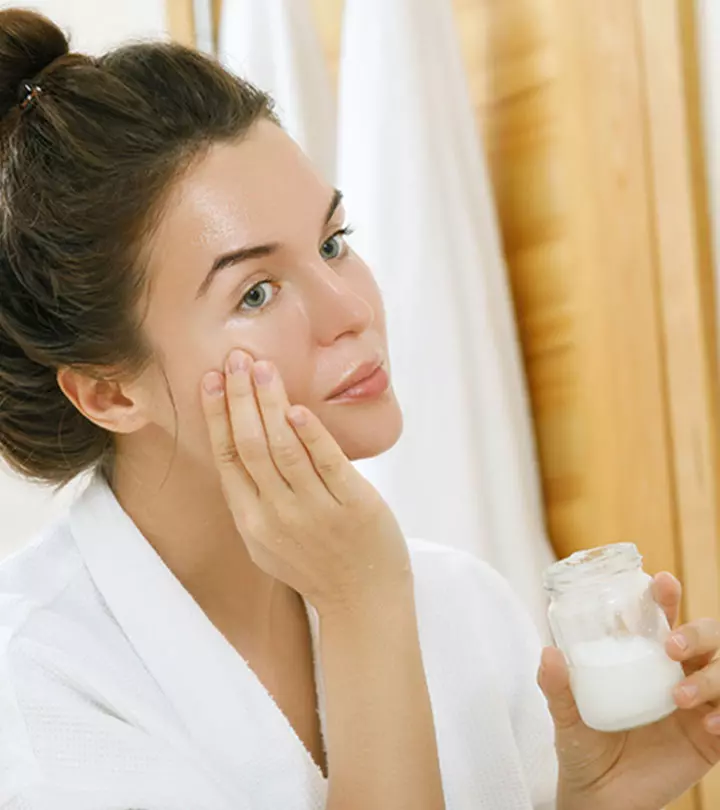
Image: iStock
Coconut oil helps to keep the skin smooth and hydrated. It is loaded with natural fats and anti-inflammatory properties and helps you in several ways. You may use coconut oil for skin issues and improve its texture and appearance. It is also a common ingredient used in many natural remedies and commercial skin care products.
Keep reading to learn the benefits of coconut oil and how to use it on the skin.
 Know Your Ingredient: Coconut Oil
Know Your Ingredient: Coconut OilWhat Is It?
A tropical, edible oil extracted from raw or dried coconut kernels.
What Are Its Benefits?
It hydrates your skin, improves texture, soothes symptoms of eczema and atopic dermatitis, heals wounds and inflammation, and minimizes UV damage and premature aging.
Who Can Use It?
Anyone except individuals with a nut or coconut allergy, those with oily or acne-prone skin and low immunity, and people undergoing antibiotics medication.
How Often?
You can use it topically as part of your daily skin care routine.
Caution
Coconut oil can cause side effects like redness, irritation, or hives in some individuals. Always do a patch test before topical application and consult your doctor before dietary consumption.
In This Article
What Is Coconut Oil?
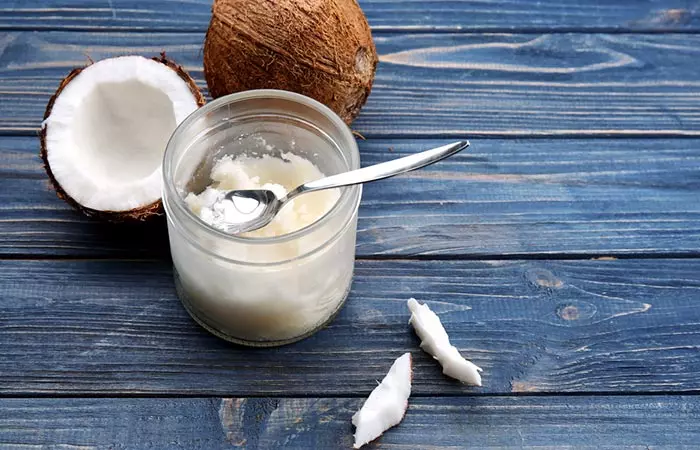
Coconut oil is highly saturated and edible oil extracted from raw or dried coconut kernels. It is 100% fat, and about 80%-90% of it is saturated fat. That is why coconut oil solidifies at low or room temperatures. It is rich in fatty acids like (1):
- Lauric acid (49%)
- Myristic acid (18%)
- Palmitic acid (8%)
- Caprylic acid (8%)
- Capric acid (7%)
- Oleic acid (6%)
- Linoleic acid (2%)
- Stearic acid (2%)
 Trivia
TriviaIt also contains trace amounts of monounsaturated and polyunsaturated fats. Keep reading to learn about the varieties of coconut oil you can use on your skin!
Key Takeaways
- Coconut oil has several benefits on your skin, like soothing the skin, preventing the effects of UV damage, cleansing, and moisturizing.
- You can use it as a facial cleanser, scrub, moisturizer, cuticle oil, or shaving gel.
- However, since the oil is comedogenic, using it on acne-prone skin may cause breakouts.
Types Of Coconut Oil For The Skin
- Virgin Coconut Oil (VCO): It is derived from fresh coconut meat and is minimally processed. Therefore, it retains most nutrients and antioxidants, making it an excellent moisturizer.
- Refined Coconut Oil: It is derived from dried coconut meat, and undergoes bleaching and deodorizing to remove the natural coconut scent and flavor.
- Fractionated Coconut Oil: It is made by separating fats from coconut oil and is popular in cosmetics due to its longer shelf life and lightweight texture.
- Organic Coconut Oil: It is sourced from organically grown coconuts and is free from harmful chemicals and pesticides, ensuring purity and higher quality.
- Cold-Pressed Coconut Oil: It is extracted without heat to preserve its natural properties. This oil is great for soothing the symptoms of skin issues like eczema and psoriasis.
Remember to always choose high-quality, unadulterated coconut oils for optimal skin benefits. Coconut oil offers some amazing skin care benefits. Find out what they are in the next section.
Benefits Of Coconut Oil For The Skin

1. Protects The Skin Barrier
Coconut oil has anti-inflammatory properties and protects the skin barrier.
It may be beneficial in soothing the symptoms of skin disorders like eczema and atopic dermatitis and restore the compromised skin barrier (2).
2. Minimizes UV Damage
UV exposure causes sunburn and premature aging. Topical coconut oil can prevent the damaging effects of UV rays on the skin and blocks 20% of the UV radiation (3), (4).
3. Promotes Wound Healing
A study on rats found that virgin coconut oil promotes collagen development and wound healing. The fatty acids and other components in coconut oil stimulate the fibroblasts (collagen-producing cells) and improve the antioxidant enzyme activities to heal wounds (5).
4. Removes Makeup
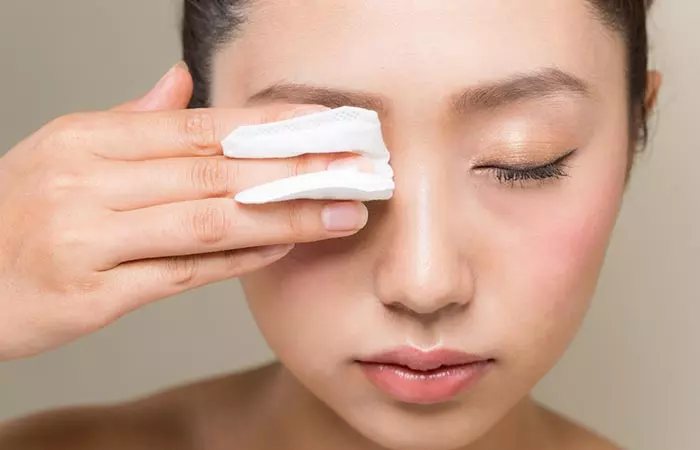
Coconut oil benefits extend not just to body, skin, and hair health but can be used as a making-removing oil cleanser in your beauty routine. It gently dissolves waterproof makeup and cleanses the skin.
5. Moisturizes The Skin
Coconut oil is rich in lauric acid and myristic acid, which makes it an emollienti Substances used to moisturize the skin because they have the ability to trap moisture and keep the skin smooth and hydrated. that softens and moisturizes the skin.
It reduces transepidermal water lossi The water that evaporates through the skin; a method of measuring the skin barrier and identifying healthy and abnormal skin conditions. (TEWL) to improve skin dryness and texture (6).
There are a variety of ways to use coconut oil for your skin. Let’s check them out.
Ways To Use Coconut Oil For Skin

1. Oil Cleanser
Massage your face with a few drops of coconut oil. Wipe it with a damp cotton cloth. Follow up with a facial cleanser to remove the remaining traces of oil and dirt.
2. Facial Scrub
Combine equal parts of coconut oil and brown sugar. Massage your face with this sugar scrub for a minute and wash off with lukewarm water. This sugar scrub exfoliates dead skin cells without damaging the skin. You can use it twice a week.
3. Facial Moisturizer
You can use coconut oil as a facial moisturizer and as a last step of your skin care routine to seal all the goodness of your beauty products. Massage your face with a few drops of virgin coconut oil and wake up with soft and smooth skin. You can even use it as a carrier oil for your favorite essential oils.
Remember: If you have acne-prone or oily skin, avoid using coconut oil.
4. Cuticle Oil
The cuticles protect the nails and keep out bacteria. However, they may dry out and get damaged. Massage them with coconut oil to keep them nourished, hydrated, and healthy.
5. Shaving Gel
If you are shaving your legs or underarms, use coconut oil to lubricate the area to prevent cuts and ingrown hair. Coconut oil provides a perfect slip for a smooth shaving result. Additionally, its skin-soothing qualities keep the skin moisturized and protected.
6. DIY Face Mask
Try making a homemade coconut oil face mask with skin-nourishing ingredients, such as turmeric and honey, to achieve instantly glowing skin. Mix 1 tablespoon of coconut oil with 1 teaspoon of honey and a pinch of turmeric powder. Apply it evenly to your face, leave for 15 minutes, then rinse it off with warm water for smooth, naturally-radiant skin.
 Trivia
TriviaAlways use pure, organic, and virgin coconut oil on your face for the best results. Avoid oils that contain preservatives and other additives. Do a patch test to avoid any possible side effects of coconut oil.
Side Effects Of Coconut Oil

If you have a nut allergy or are allergic to coconut oil, applying it may cause:
- Irritation
- Hives
- Itching
- Rashes
- Redness
Coconut oil is comedogenici The ability of a product or ingredient to cause acne and blackheads by clogging the skin pores. . Using coconut oil for acne or oily skin may aggravate the breakouts. If you have oily skin and are on antibiotics or have low immunity, do not apply coconut oil on the face as it may aggravate bacterial and fungal spread due to its comedogenic nature.
In A Nutshell
Coconut oil is a highly nutritious oil that is commonly used in skincare products and several home remedies. Its anti-inflammatory properties and emollient properties make it ideal for protecting the skin barrier, slowing down premature aging, and moisturizing the skin. You can use coconut oil for your skin as an oil cleanser, facial moisturizer, or shaving gel. You can also make coconut oil face masks by pairing the oil with other wholesome ingredients like honey or aloe vera for intense hydration. People with a nut or coconut allergy should avoid using coconut oil. If you experience side effects such as redness, irritation, or hives, stop its usage immediately and consult a doctor.
Frequently Asked Questions
Can you use coconut oil every day on the skin?
It depends on your skin type. You can use coconut oil daily if your skin is not prone to breakouts. However, you should avoid it if you have acne-prone skin (as coconut oil is comedogenic).
Can I use coconut oil on my face every night?
Yes. You can use coconut oil on your face overnight if you have chafed, dry, and flaky skin as it helps improve skin hydration. However, steer clear of it if you have oily skin as it can clog your pores.
Does coconut oil make skin glow?
Yes. Coconut oil is rich in antioxidants and fatty acids that boost your skin’s glow and may also have some anti-aging benefits.
Can coconut oil reduce pimples?
Yes. The medium-chain fatty acids in coconut oil have antioxidant and antimicrobial properties. The oil helps kill the microorganisms that may cause pimples and protect the skin from further breakouts.
Does coconut oil tighten skin on the face?
While anecdotal evidence suggests that coconut oil boosts collagen production in the skin that helps tighten it, there are no scientific studies to back this claim.
Illustration: Benefits Of Coconut Oil For The Skin
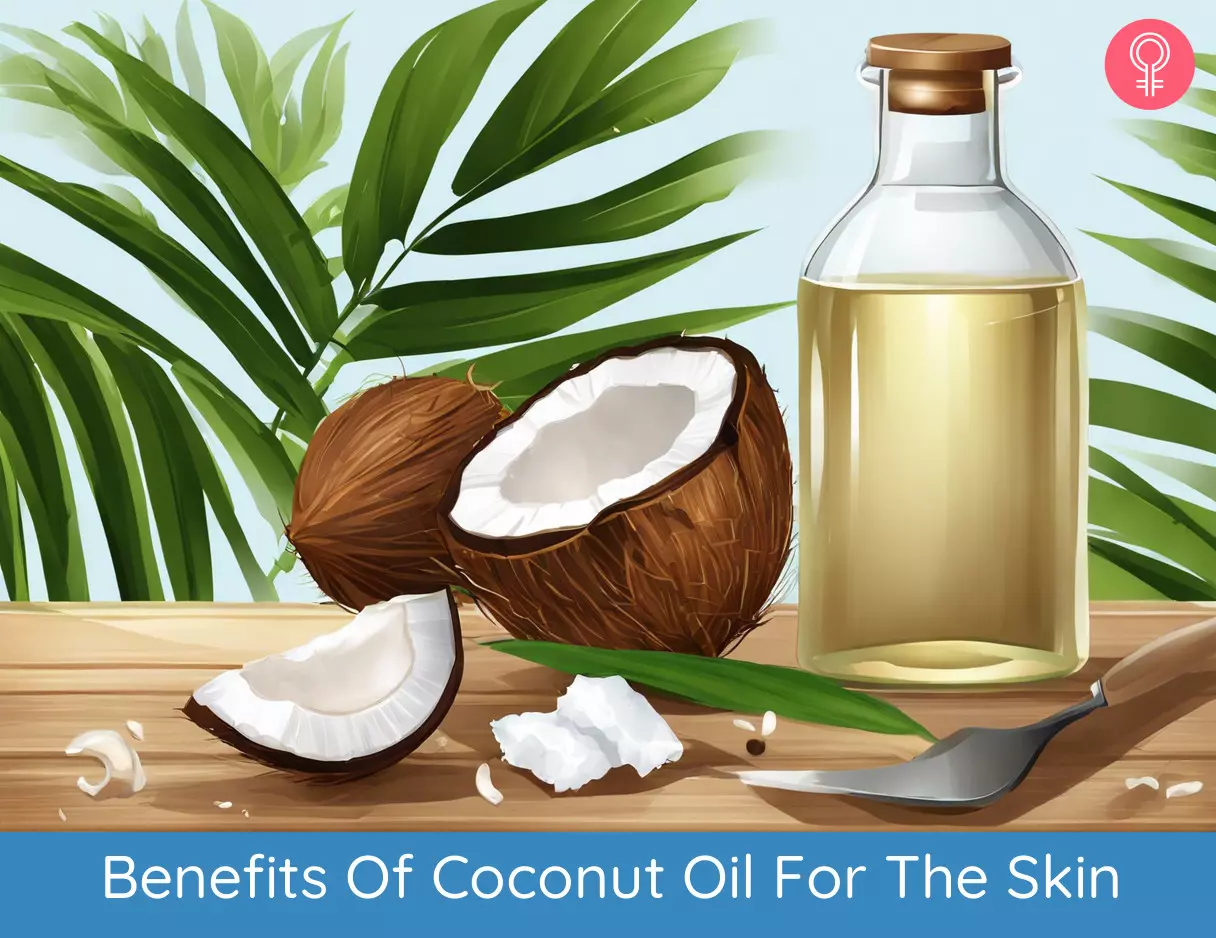
Image: Stable Diffusion/StyleCraze Design Team
Can coconut oil help improve acne or aggravate it further? Check out this video for insights into its effectiveness as an acne treatment and more. Check it out to know more.
References
Articles on StyleCraze are backed by verified information from peer-reviewed and academic research papers, reputed organizations, research institutions, and medical associations to ensure accuracy and relevance. Read our editorial policy to learn more.
- Coconut oil and palm oil\’s role in nutrition health and national development: A review
https://www.ncbi.nlm.nih.gov/labs/pmc/articles/PMC5044790/ - In vitro anti-inflammatory and skin protective properties of Virgin coconut oil
https://www.ncbi.nlm.nih.gov/pmc/articles/PMC6335493/ - Anti-Inflammatory and Skin Barrier Repair Effects of Topical Application of Some Plant Oils
https://www.ncbi.nlm.nih.gov/pmc/articles/PMC5796020/ - Potential of herbs in skin protection from ultraviolet radiation
https://www.ncbi.nlm.nih.gov/labs/pmc/articles/PMC3263051/ - Effect of topical application of virgin coconut oil on skin components and antioxidant status during dermal wound healing in young rats
https://pubmed.ncbi.nlm.nih.gov/20523108/ - The effect of topical virgin coconut oil on SCORAD index transepidermal water loss and skin capacitance in mild to moderate pediatric atopic dermatitis: a randomized double-blind clinical trial
https://onlinelibrary.wiley.com/doi/full/10.1111/ijd.12339
Read full bio of Dr. Archna Agrawal
Read full bio of Monomita Chakraborty
Read full bio of Anjali Sayee
Read full bio of Swathi E





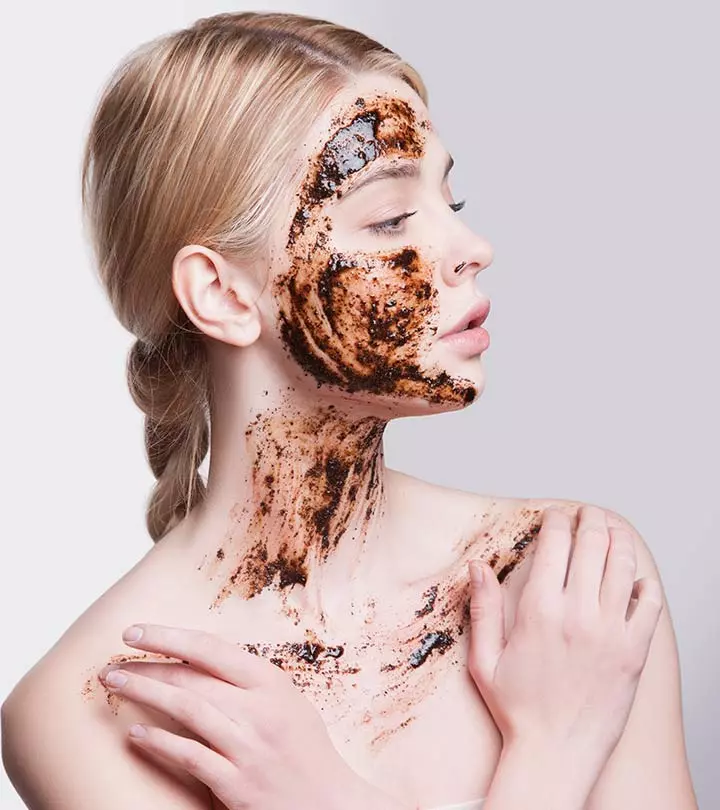
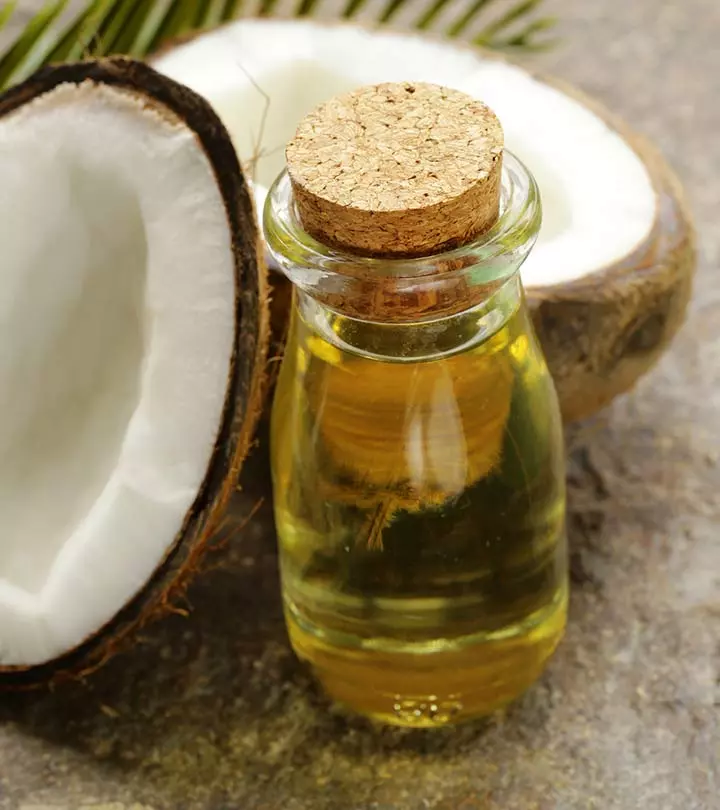
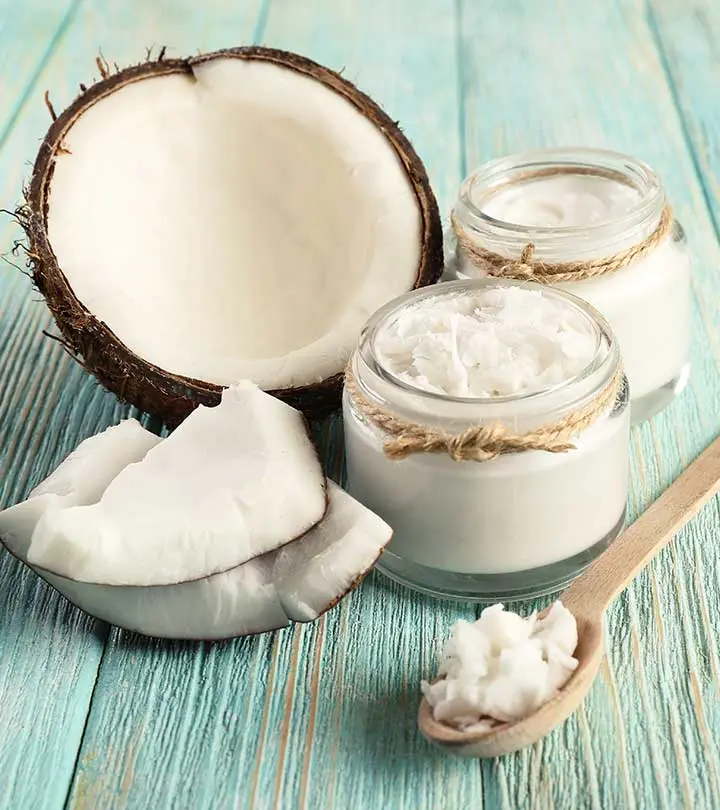
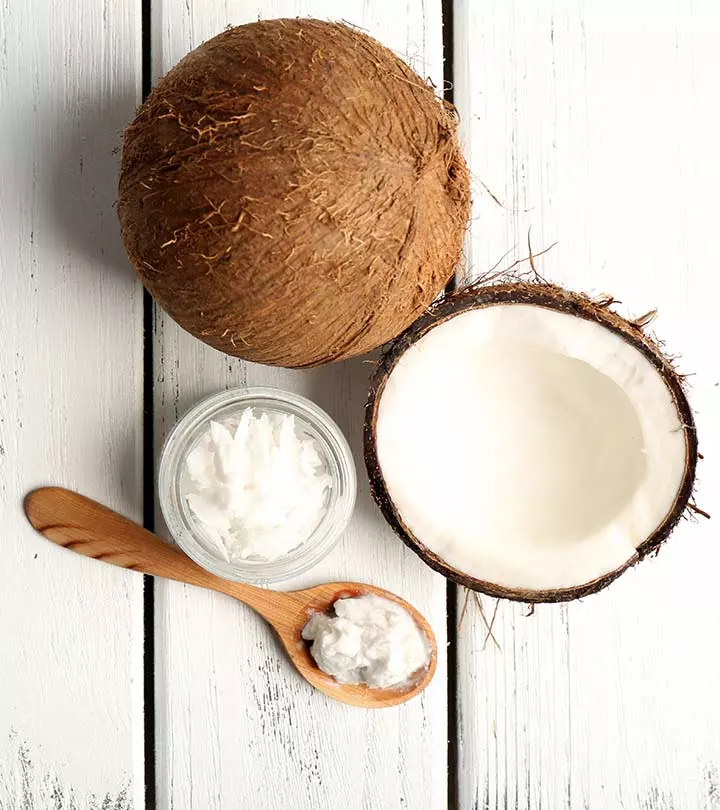
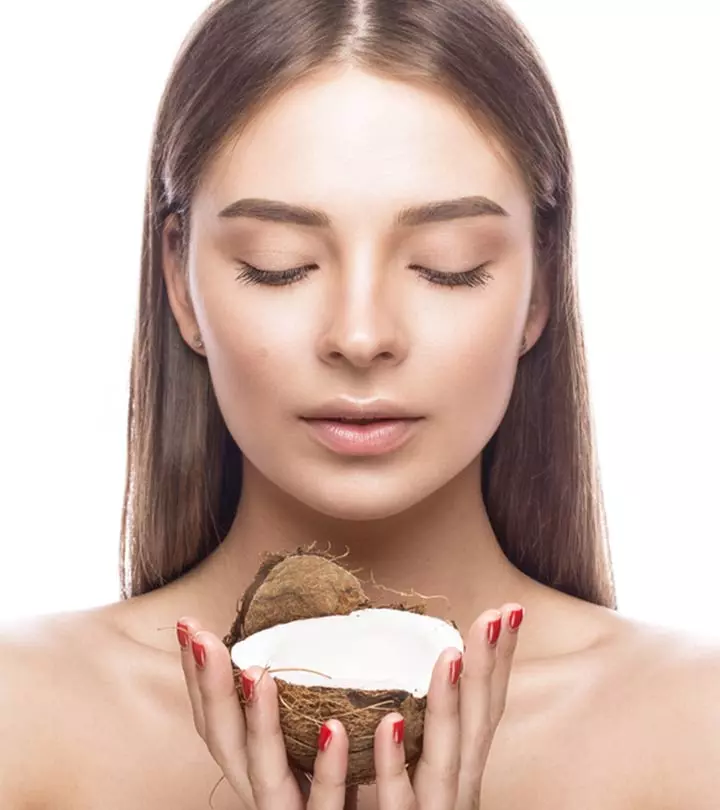
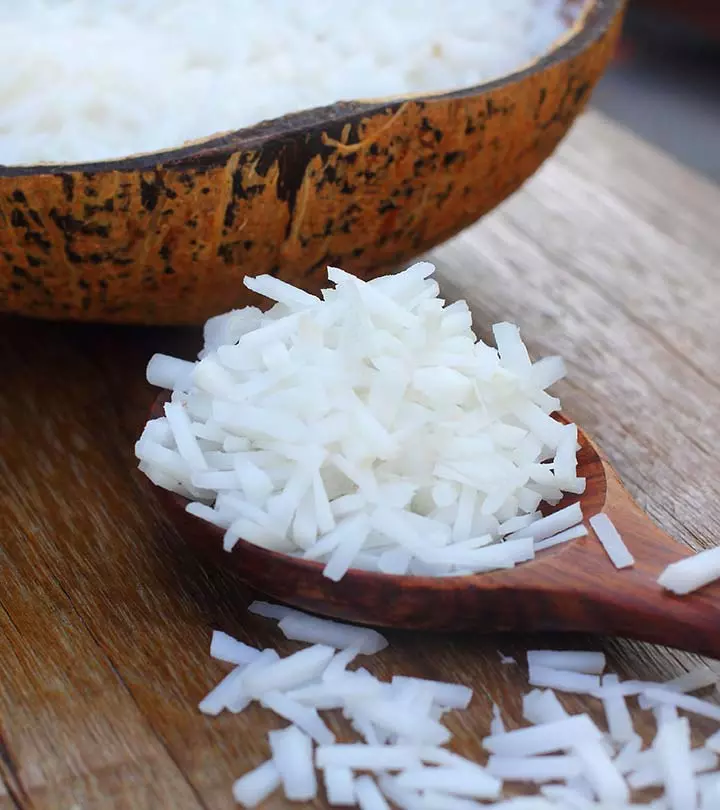
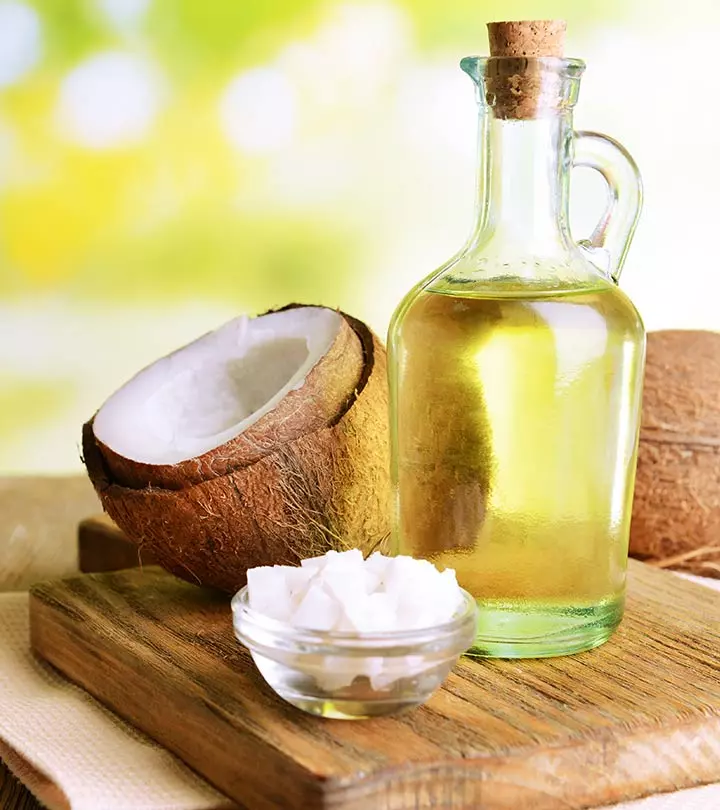

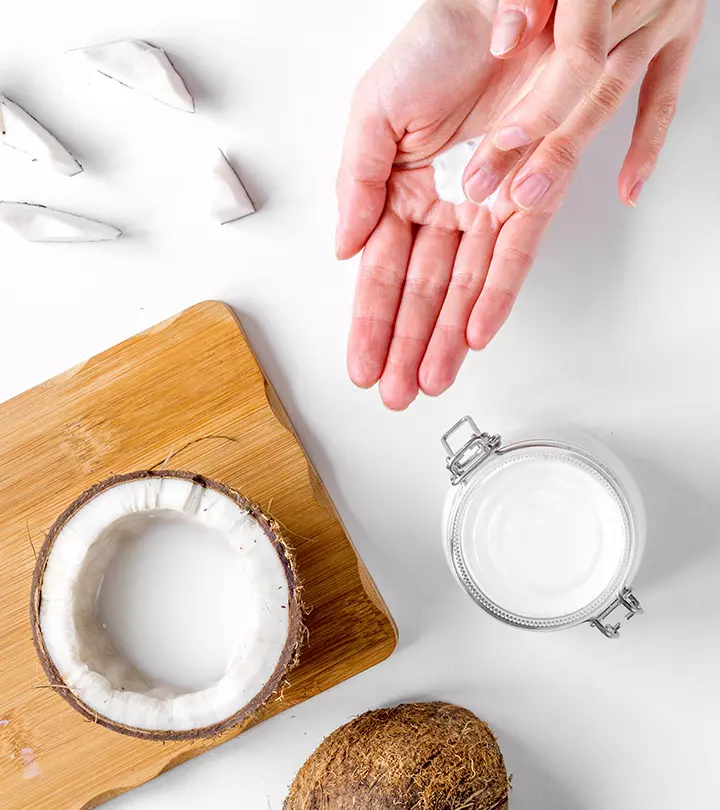
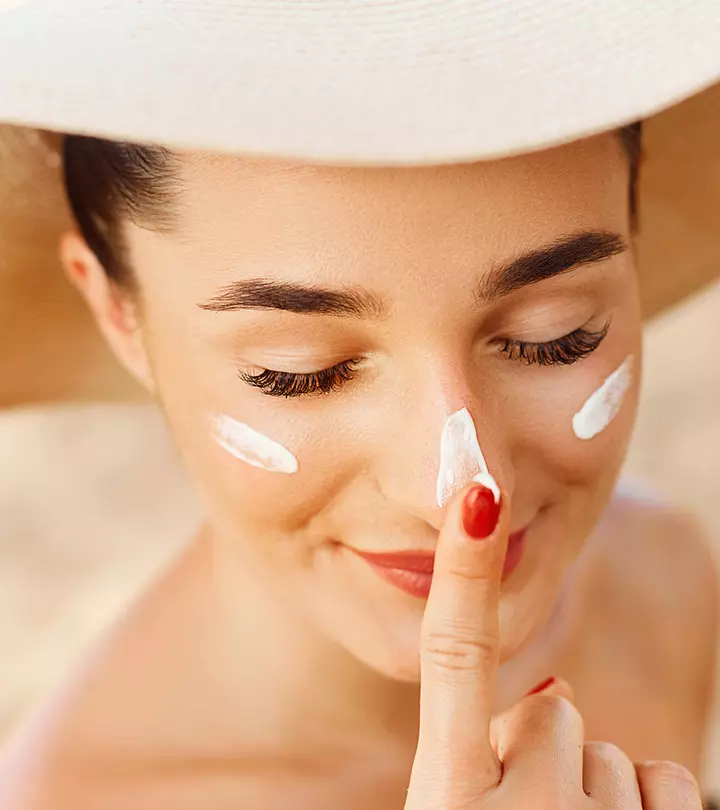
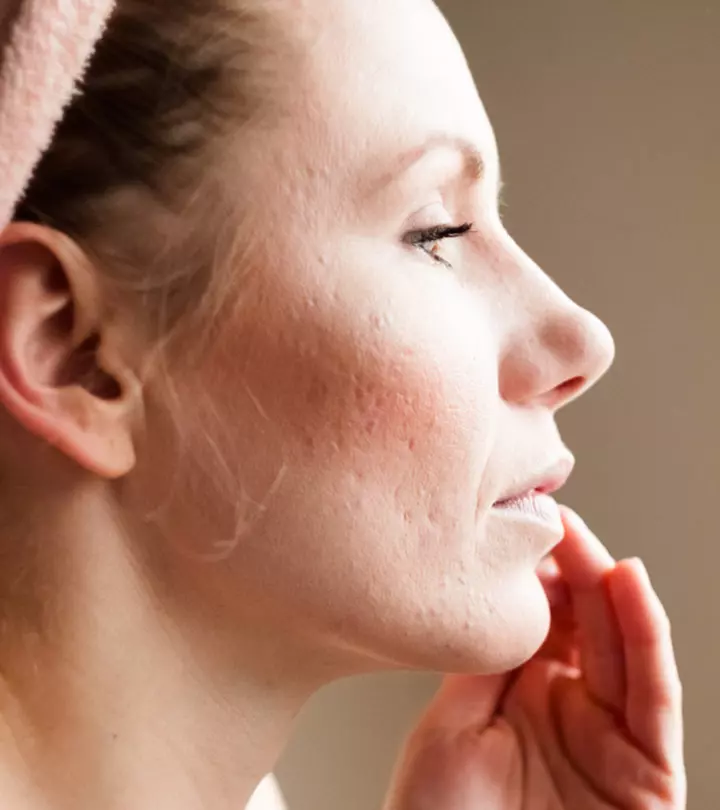



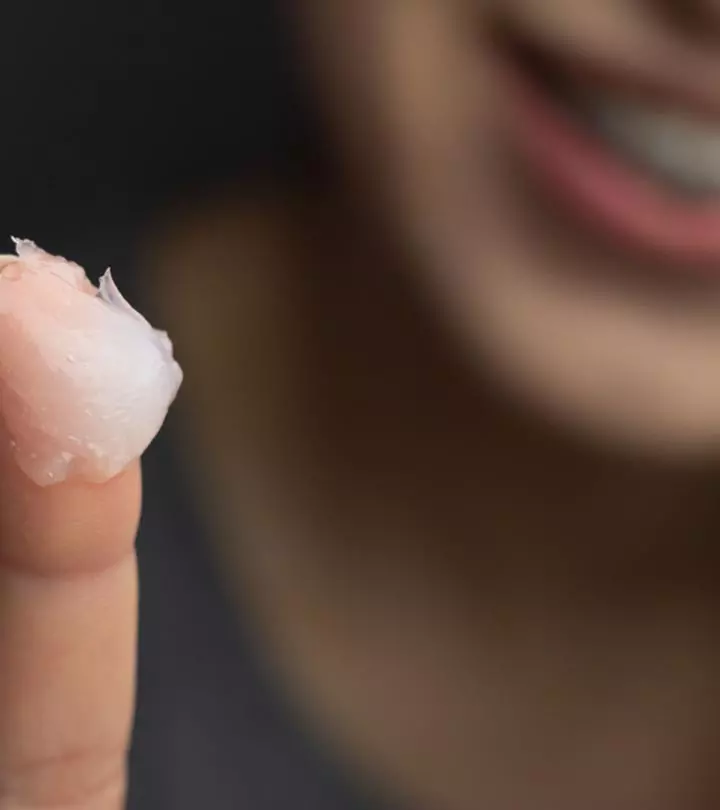
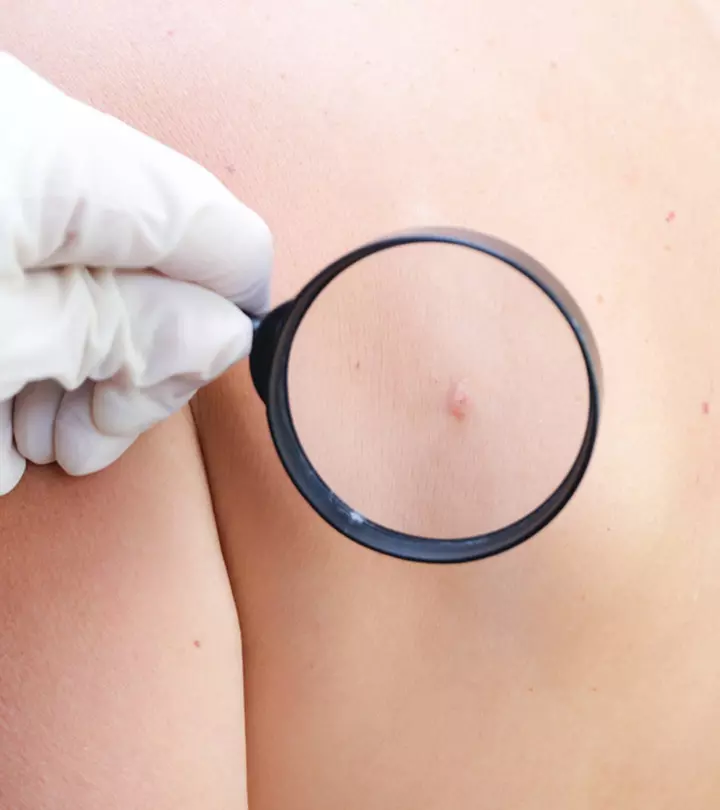

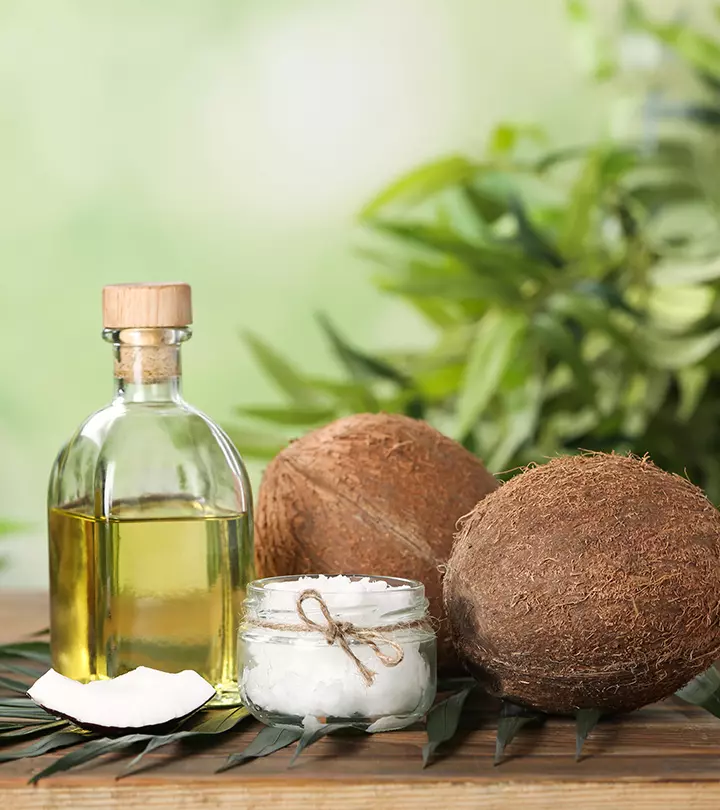

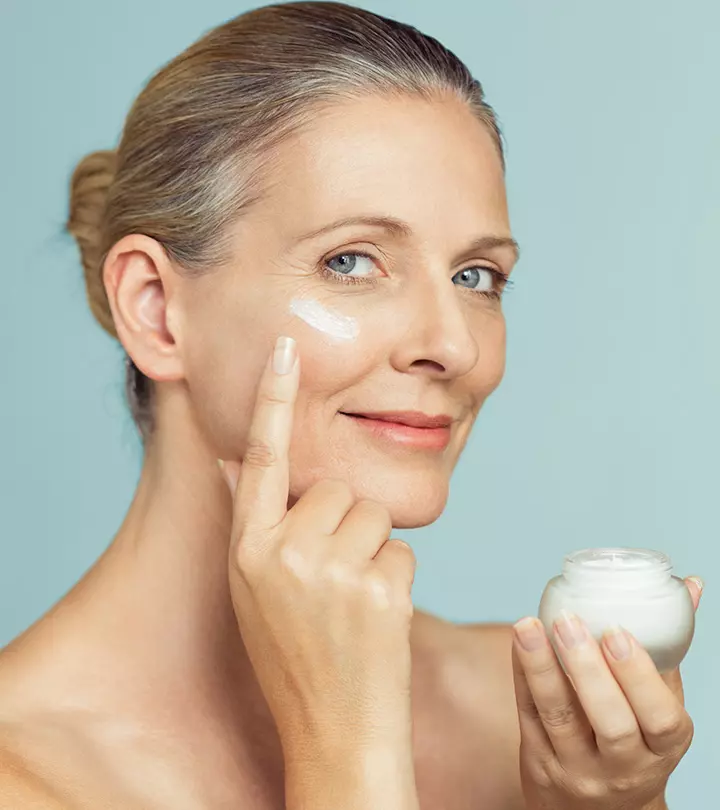
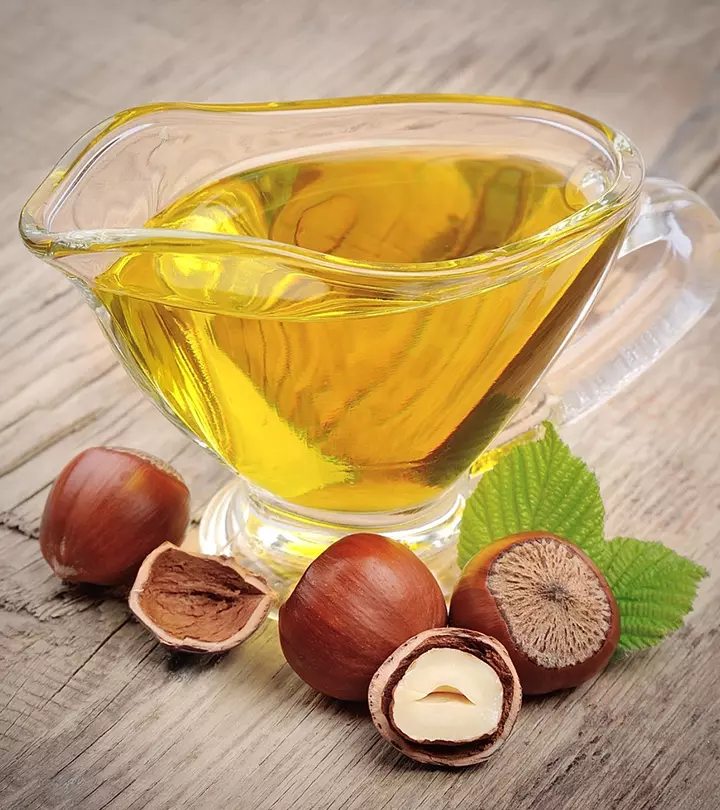
Community Experiences
Join the conversation and become a part of our empowering community! Share your stories, experiences, and insights to connect with other beauty, lifestyle, and health enthusiasts.